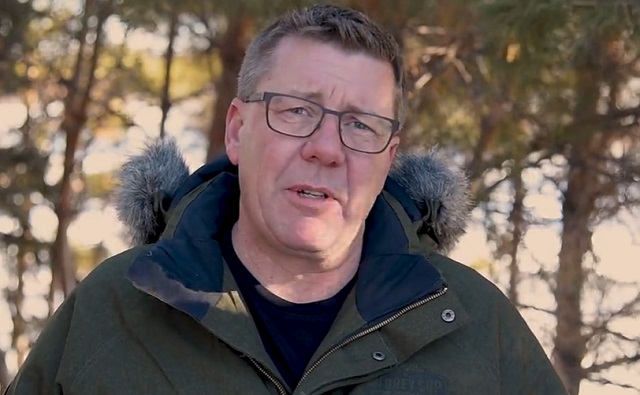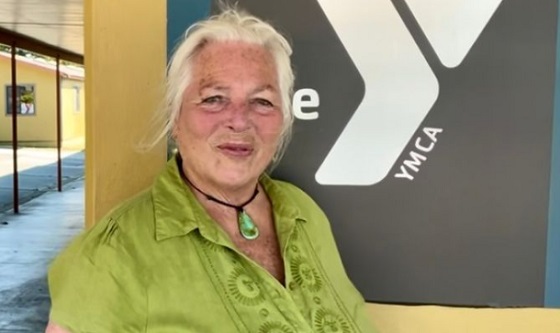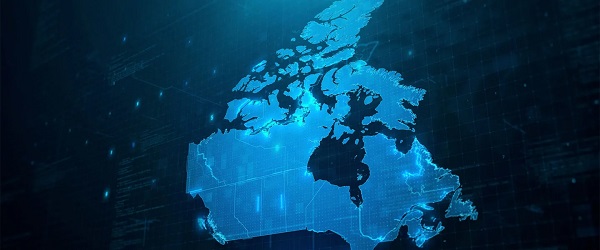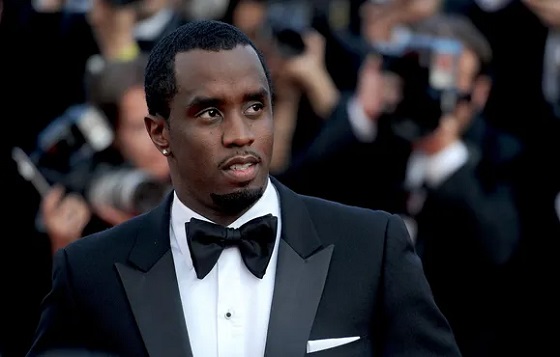Economy
Saskatchewan set to defy Trudeau gov’t, stop collecting carbon tax on electric home heat

From LifeSiteNews
Premier Scott Moe is ignoring a threat from Liberal Prime Minister Justin Trudeau that he could serve jail time for failing to impose the tax
Saskatchewan Premier Scott Moe now says that starting January 1 his province will no longer collect a federally imposed carbon tax on electric heat in addition to natural gas despite a threat from the Liberal government of Prime Minister Justin Trudeau that he could serve jail time should he defy the feds.
Moe and Saskatchewan Party MLA Jim Lemaigreas made the announcement last Thursday in a video posted on X (formerly Twitter).
“We are going to need to determine who is heating their home with electricity and then estimate the percentage of their power bill that is being used for that heat,” Moe said.
Moe added that his government is working out how to stop collecting the carbon tax on electric home heat. Regardless, anyone using electric heat in the province or natural gas to warm their home will not pay a federal carbon tax.
According to Moe, extending the carbon tax exemption to electric heat makes sense because 15% of people in the province use it to heat their homes. The other 85% use natural gas to heat their homes.
January and February can bring brutally cold temperatures to many parts of the province, and natural gas-fired furnaces are best at handling extreme temperatures. However, many in the province, especially those in the north, use electric heaters to heat their homes.
Moe noted how Saskatchewan owns its natural gas utility SaskEnergy, which by extension means taxpayers own it. He said the move to stop collecting the tax is ideal given the province controls its utilities, which acts as a safeguard from federal overreach.
“Well, we also own the electrical utility, and that’s why our government has decided that SaskPower will also stop collecting the carbon tax on electric heat,” Moe said.
On October 30, Moe first announced that he would stop collecting the carbon tax on home heating starting January 1, after Trudeau suspended his carbon tax on home heating oil, which is almost exclusively used in Atlantic Canada to heat homes, and not in his province.
“I cannot accept the federal government giving an affordability break to people in one part of Canada but not here,” Moe said in a video posted on X.
Moe promised that if the exemption was not extended to all other forms of home heating in his province, he would tell SaskEnergy, which is a Crown corporation that provides energy to all residents, to stop collecting the carbon tax on natural gas. This, Moe said, would effectively provide “Saskatchewan residents with the very same exemption that the federal government has given heating oil in Atlantic Canada.”
Moe’s government has gone as far as introducing legislation to back the scrapping of the federal carbon tax on natural gas. The legislation will shield all executives at SaskEnergy from being jailed or fined by the federal government if they stop collecting the tax.
The Trudeau Liberal government, however, has refused to rule out jail time for Moe if he refuses to collect the carbon tax on home heating.
On November 3, Liberal Finance Minister and Deputy Prime Minister Chrystia Freeland avoided directly answering whether Moe would be criminally charged for refusing to collect Trudeau’s controversial carbon tax for home heating within the province.
Trudeau has said that “Canada is a country of the rule of law, and we expect all Canadians to follow the law,” he said.
“That applies to provinces as much as it applies to individual citizens,” he added.
Alberta Premier Danielle Smith is also fighting Trudeau’s carbon tax and has vowed to use every tool available to her government to take him on.
Indeed, after Canadian Environment Minister Steven Guilbeault brushed off Smith’s invocation of the “Sovereignty Act” as being merely “symbolic,” the Alberta leader warned him that her province will be building new gas-fired power plants regardless of his new “clean energy” rules.
Moe has court rulings to back up his defiance of Trudeau in asserting provincial autonomy
Two recent court rulings dealt a serious blow to the Trudeau government’s environmental activism via legislation by asserting the provinces have autonomy when it comes to how they use and develop their own natural resources.
The most recent was when the Federal Court of Canada on November 16 overturned the Trudeau government’s ban on single-use plastic, calling it “unreasonable and unconstitutional.”
The Federal Court ruled in favor of the provinces of Alberta and Saskatchewan by stating that Trudeau’s government had overstepped its authority by classifying plastic as “toxic” as well as banning all single-use plastic items, like straws, bags, and eating utensils.
The second victory for Alberta and Saskatchewan concerns a Supreme Court ruling that stated that Trudeau’s law, C-69, dubbed the “no more pipelines” bill, is “mostly unconstitutional.” The decision returned authority over the pipelines to provincial governments, meaning oil and gas projects headed up by the provinces should be allowed to proceed without federal intrusion.
A draft version of the federal government’s new Clean Energy Regulations (CERs) introduced by Guilbeault projects billions in higher costs associated with a so-called “green” power transition, especially in the resource-rich provinces of Alberta, Saskatchewan, New Brunswick, and Nova Scotia, which use natural gas and coal to fuel power plants.
Business executives in Alberta’s energy sector have also sounded the alarm over the Trudeau government’s “green” transition, saying it could lead to unreliability in the power grid.
The Trudeau government’s current environmental goals – in lockstep with the United Nations’ “2030 Agenda for Sustainable Development” – include phasing out coal-fired power plants, reducing fertilizer usage, and curbing natural gas use over the coming decades.
The reduction and eventual elimination of the use of so-called “fossil fuels” and a transition to unreliable “green” energy has also been pushed by the World Economic Forum (WEF) – the globalist group behind the socialist “Great Reset” agenda – an organization in which Trudeau and some of his cabinet members are involved.
Business
Canada’s loyalty to globalism is bleeding our economy dry

This article supplied by Troy Media.
Trump’s controversial trade policies are delivering results. Canada keeps playing by global rules and losing
U.S. President Donald Trump’s brash trade agenda, though widely condemned, is delivering short-term economic results for the U.S. It’s also revealing the high cost of Canada’s blind loyalty to globalism.
While our leaders scold Trump and posture on the world stage, our economy is faltering, especially in sectors like food and farming, which have been sacrificed to international agendas that don’t serve Canadian interests.
The uncomfortable truth is that Trump’s unapologetic nationalism is working. Canada needs to take note.
Despite near-universal criticism, the U.S. economy is outperforming expectations. The Federal Reserve Bank of Atlanta projects 3.8 per cent second-quarter GDP growth.
Inflation remains tame, job creation is ahead of forecasts, and the trade deficit is shrinking fast, cut nearly in half. These results suggest that, at least in the short term, Trump’s economic nationalism is doing more than just stirring headlines.
Canada, by contrast, is slipping behind. The economy is contracting, manufacturing is under pressure from shifting U.S. trade priorities, and food
inflation is running higher than general inflation. One of our most essential sectors—agriculture and food production—is being squeezed by rising costs, policy burdens and vanishing market access. The contrast with the U.S. is striking and damning.
Worse, Canada had been pushed to the periphery. The Trump administration had paused trade negotiations with Ottawa over Canada’s proposed digital services tax. Talks have since resumed after Ottawa backed away from implementing it, but the episode underscored how little strategic value
Washington currently places on its relationship with Canada, especially under a Carney-led government more focused on courting Europe than securing stable access to our largest export market. But Europe, with its own protectionist agricultural policies and slower growth, is no substitute for the scale and proximity of the U.S. market. This drift has real consequences, particularly for
Canadian farmers and food producers.
The problem isn’t a trade war; it’s a global realignment. And while Canada clings to old assumptions, Trump is redrawing the map. He’s pulling back from institutions like the World Health Organization, threatening to sever ties with NATO, and defunding UN agencies like the Food and Agriculture Organization (FAO), the global body responsible for coordinating efforts to improve food security and support agricultural development worldwide. The message is blunt: global institutions will no longer enjoy U.S. support without measurable benefit.
To some, this sounds reckless. But it’s forcing accountability. A senior FAO official recently admitted that donors are now asking hard questions: why fund these agencies at all? What do they deliver at home? That scrutiny is spreading. Countries are quietly realigning their own policies in response, reconsidering the cost-benefit of multilateralism. It’s a shift long in the making and long resisted in Canada.
Nowhere is this resistance more damaging than in agriculture. Canada’s food producers have become casualties of global climate symbolism. The carbon tax, pushed in the name of international leadership, penalizes food producers for feeding people. Policies that should support the food and farming sector instead frame it as a problem. This is globalism at work: a one-size-fits-all policy that punishes the local for the sake of the international.
Trump’s rhetoric may be provocative, but his core point stands: national interest matters. Countries have different economic structures, priorities and vulnerabilities.
Pretending that a uniform global policy can serve them all equally is not just naïve, it’s harmful. America First may grate on Canadian ears, but it reflects a reality: effective policy begins at home.
Canada doesn’t need to mimic Trump. But we do need to wake up. The globalist consensus we’ve followed for decades is eroding. Multilateralism is no longer a guarantee of prosperity, especially for sectors like food and farming. We must stop anchoring ourselves to frameworks we can’t influence and start defining what works for Canadians: secure trade access, competitive food production, and policy that recognizes agriculture not as a liability but as a national asset.
If this moment of disruption spurs us to rethink how we balance international cooperation with domestic priorities, we’ll emerge stronger. But if we continue down our current path, governed by symbolism, not strategy, we’ll have no one to blame for our decline but ourselves.
Dr. Sylvain Charlebois is a Canadian professor and researcher in food distribution and policy. He is senior director of the Agri-Food Analytics Lab at Dalhousie University and co-host of The Food Professor Podcast. He is frequently cited in the media for his insights on food prices, agricultural trends, and the global food supply chain
Troy Media empowers Canadian community news outlets by providing independent, insightful analysis and commentary. Our mission is to support local media in helping Canadians stay informed and engaged by delivering reliable content that strengthens community connections and deepens understanding across the country
Business
Carney’s spending makes Trudeau look like a cheapskate

This article supplied by Troy Media.
 By Gwyn Morgan
By Gwyn Morgan
The Carney government’s spending plans will push Canada’s debt higher, balloon the deficit, and drive us straight toward a credit downgrade
Prime Minister Mark Carney was sold to Canadians as the grown-up in the room, the one who’d restore order after Justin Trudeau’s reckless deficits. Instead, he’s spending even more and steering Canada deeper into trouble. His newly unveiled fiscal plan will balloon the deficit, drive up
interest costs and put Canada’s credit rating and economic future in jeopardy.
When Trudeau first ran for office, he promised “modest short-term deficits” of under $10 billion annually and a balanced budget by 2019. Instead, he ran nine consecutive deficits, peaking at $62 billion in 2023–24, and nearly doubled the national debt, from $650 billion to $1.236 trillion. That
reckless spending should have been a warning.
Yet Carney, presented for years as a safe, globally respected economic steward, is proving to be anything but. The recently released Main Estimates (the federal government’s official spending blueprint) project program spending will rise 8.4 per cent in 2025–26 to $488 billion. Add in at least $50 billion to service the national debt, and the federal tab balloons to $538 billion.
Even assuming tax revenues stay flat, we’re looking at a $40-billion deficit. But that’s optimistic. The ongoing tariff war with the United States, now hitting everything from autos to metals to consumer goods, is cutting deep into economic output. That means weaker revenues and a much larger shortfall. Carney’s response? Spend even more.
And the Canadian dollar is already paying the price. Since 2015, the loonie has slipped from 78 cents U.S. to 73. Carney’s spending spree is likely
to drive it even lower, eroding the value of Canadians’ wages, savings and retirement funds. Inflation? Buckle up.
Franco Terrazzano of the Canadian Taxpayers Federation nailed it in a recent Financial Post column: “Mark Carney was right: He’s not like Justin Trudeau, he spends more,” Terrazzano argues. “The government will spend $49 billion on interest this year and the Parliamentary Budget Officer projects interest charges will be blowing a $70-billion hole in the budget by 2029. That means our kids and grandkids will be making payments on Ottawa’s debt for the rest of their lives.”
Meanwhile, Canada’s credit rating is under real threat. An April 29 report by Fitch Ratings warned that “Canada has experienced rapid and steep fiscal deterioration, driven by a sharply weaker economic outlook and increased government spending during the electoral cycle. If the Liberal program is implemented, higher deficits are likely to increase federal, provincial and local debt to above 90 per cent of GDP.”
That’s not just a red flag; it’s a fire alarm. A downgraded credit rating means Ottawa will pay more to borrow, which trickles down to higher interest rates on everything from provincial debt to mortgages and business loans.
But this decline didn’t start with tariffs. The rot runs deeper. One of the clearest signs of a faltering economy is falling business investment per worker. According to the C.D. Howe Institute, investment has been shrinking since 2015. Canadian businesses now invest just 66 cents of new capital for every dollar invested by their OECD counterparts; only 55 cents compared to U.S. firms. That means less productivity, fewer wage gains and stagnating living standards.
Why is investment collapsing? Policy. Regulation. Taxes. Uncertainty.
The C.D. Howe report laid out a straightforward to-do list, one the federal government continues to ignore:
Reform corporate taxes to attract capital investment.
Introduce early-stage investment incentives.
Tear down regulatory barriers delaying resource and infrastructure projects, especially in energy (maybe then Alberta won’t feel like seceding).
Promote IP investment with targeted tax credits.
Bring stability and predictability back to the regulatory process.
Instead, what Canadians get is policy chaos and endless virtue-signalling. That’s no substitute for economic growth. And let’s talk about Carney’s much-touted past. Voters were bombarded with reminders that he led the Bank of Canada during the 2008–09 financial crisis. But it was Jim Flaherty, Stephen Harper’s finance minister, who made the hard fiscal decisions that got the country through it. Carney’s tenure at the Bank of England? A different story. As former U.K. Prime Minister Liz Truss put it: “Mark Carney did a terrible job” at the Bank of England. “He printed money to a huge extent, creating inflation.”
Fast-forward to today, and Canada’s performance is nothing short of dismal. Our GDP per capita sits at just $53,431, compared to America’s $82,769. That’s not just a bragging-rights statistic. It reflects real differences in productivity, competitiveness and national prosperity. Worse, over the past 10 years, Canada’s per capita GDP has grown just 1.1 per cent, second worst in the OECD, ahead of only Luxembourg.
We remain a great country filled with capable people, but our most significant fault may be how easily we fall for image over substance. First with Trudeau’s sunny ways. Now with Carney’s global banker persona. The reality? His plan risks stripping Canadians of their prosperity, downgrading our creditworthiness and deepening long-term decline.
It pains me to say it, but unless something changes fast, Canadians face continued erosion in their standard of living and inflation-driven losses in their savings. The numbers are grim. The direction is wrong. And the consequences are generational.
Trudeau fooled voters with promises of restraint. Carney’s now asking for the same trust, with an even bigger bill attached. Canadians can’t afford to make the same mistake twice.
Gwyn Morgan is a retired business leader who has been a director of five global corporations
-

 Banks2 days ago
Banks2 days agoWelcome Back, Wells Fargo!
-

 International2 days ago
International2 days agoWoman wins settlement after YMCA banned her for complaining about man in girls’ locker room
-

 Business1 day ago
Business1 day agoPrairie provinces and Newfoundland and Labrador see largest increases in size of government
-

 MxM News1 day ago
MxM News1 day agoDiddy found not guilty of trafficking, faces prison on lesser charge
-

 Alberta1 day ago
Alberta1 day agoAlberta government records $8.3 billion surplus—but the good times may soon end
-

 Business9 hours ago
Business9 hours agoCanada’s loyalty to globalism is bleeding our economy dry
-

 Bruce Dowbiggin1 day ago
Bruce Dowbiggin1 day agoCanada Day 2025: It’s Time For Boomers To Let The Kids Lead
-

 Economy1 day ago
Economy1 day agoTrump opens door to Iranian oil exports






